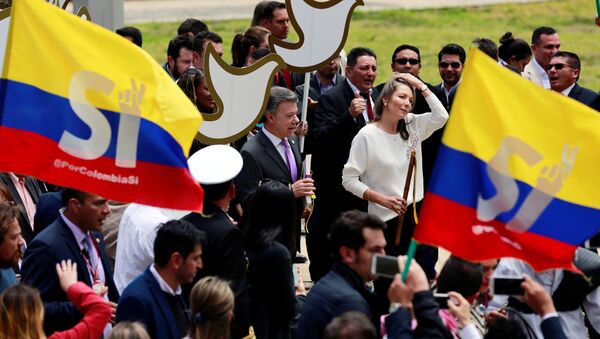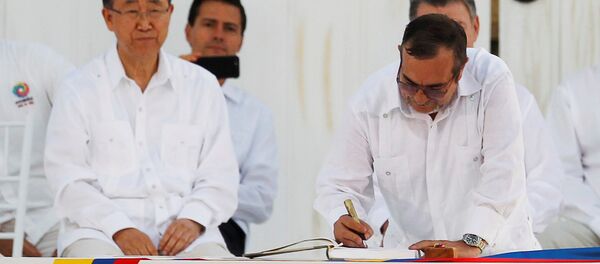Late Sunday, a historic and unprecedented peace agreement between the Colombian government and the FARC rebel movement, signed in September, was rejected by Colombian voters, with 50.22 percent opposed and 49.78 percent in favor.
The result of a vote that was expected to end 52 years of war stunned many, as pre-referendum polls had predicted the "yes" campaign would win. According to Velasco, however, the results are not surprising, and can be accounted for by an understanding of regional politics. Those regions mostly affected by the long-term conflict supported the "yes" vote. Those areas that did not have to deal with the violence on a daily basis, the more conservative regions, voted against.
Over the course of the war, some 220,000 people were killed and 8 million displaced. Under the agreement, rebels could avoid jail if they confessed to their crimes, but many Colombians "did not approve of the transitional justice."
"They want more accountability from the FARC," Velasco said. "FARC has been a very intransigent actor for a long time. They have not been transparent about how much money they have, to what extent they could repay the victims with the funds that they might have, that they have procured through drug trafficking or other illegal activities. So, there are a lot of complicated issues, and then a lot of people felt very uncomfortable with the possibility of a lot of these people not serving jail time."
The "no" vote to the peace deal in its current wording does not mean that the government and the rebels do not want peace. Following the vote, both parties stated they wish to continue negotiating to reach a lasting peace agreement.
Colombian President Juan Manuel Santos claimed, "We must end a 52-year war and open the way to peace, a peace that will take us to a better future… peace is the way to ensure our children and grandchildren have a better country."
"I will continue seeking peace until the last day of my presidency," he asserted.



